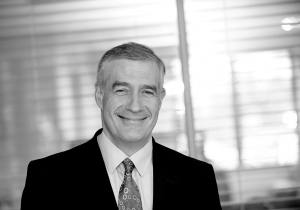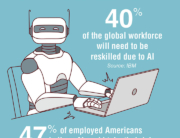Recruitment firm Cordant Group announced in September that it was taking on a mission that goes beyond just returning values to shareholders, that of being a “social enterprise.”
Being a social enterprise is more than a name or slogan. Companies that claim that label, in the form of Community Interest Companies, as they exist in the UK, agree to devote at least two-thirds of profits into making a difference, agree to pay reasonable salaries and do not exist solely for the shareholder. However, they aren’t charities. They make money by selling products or services and don’t rely on volunteering, grants or donations.
Cordant Group, based in Hillingdon, England, ranks as the 40th-largest recruitment firm in the world, according to Staffing Industry Analysts, and claims to be the UK’s largest social enterprise.
In pursuit of its new mission, Cordant Group has already:
- Capped all annual shareholder dividends at approximately £250,000 per shareholder family, which in today’s terms equates to committing profits exceeding £3 million to its social mission.
- Capped all executive salaries at 20 times that of the lowest paid worker.
- Agreed to be independently audited.
Senior Managing Editor Craig Johnson spoke with Cordant Group Chief Energizer Phillip Ullmann to learn more about the company, its mission and what the socially-focused move means in today’s world.
Johnson: Describe Cordant Group’s business.
 Ullman: Cordant Group is primarily two sectors — recruitment and facility services. Annual turnover is about £850 million, and in the last year we placed about 125,000 people. That gives you an idea of the scale. Geographically, we operate in the United Kingdom, Ireland, all over Europe and in Australia.
Ullman: Cordant Group is primarily two sectors — recruitment and facility services. Annual turnover is about £850 million, and in the last year we placed about 125,000 people. That gives you an idea of the scale. Geographically, we operate in the United Kingdom, Ireland, all over Europe and in Australia.
We’re in most sectors. We do blue-collar work, white-collar recruitment, perm to temp. We also do healthcare, education and IT.
Why did Cordant Group decide to become a social enterprise?
Deloitte was advising us on a public-sector opportunity and said, “Would you think about doing it as social enterprise?” and I knew nothing about it. I studied and started to understand what it was, and I genuinely felt that I found a hidden treasure. That’s the way it felt to me. It is a completely new paradigm. It’s not a minor change; it’s a complete paradigm shift.
I’m sitting in my office with my grandfather’s portrait behind me. I’m looking at it now. He came to be the equivalent of a Supreme Court judge in France, after the war. Essentially, he’s my hero. He was completely dedicated to society and risked his life to save the lives of others. The whole concept of working for society is deeply rooted in my family and my grandfather’s approach to life. I grew up in a household where my parents were both dedicated completely to the family but also to the community and the society. They always gave back. For example, my mother would every afternoon visit elder members of the community and actually make a fundamental difference to their lives, and these people actually lived for her visits. So, it surrounded me from a young age.
My dad worked for the family company but also always gave back to the community when he helped the local institutions, the local schools. I think the concept of “we” as opposed to “I” is completely within my blood. As soon I understood what social enterprise was about, I recognized that it was for us.
What is the social mission of the Cordant Group?
The way we describe our mission is the “delight of people.” Now, that may sound broad, but it’s pragmatic. We’re not just looking to please people; we want, in time, to enable people to live more meaningful lives. The mission is broad, but essentially it is focused on people and relationships rather than money.
In terms of the service or behaviors, we’re encouraging in order to delight people. We’re looking to build on three fundamental values:
Respect yourself, which means that people have to feel confident in their own capabilities — unfortunately that is not always the case, especially in the region of the minimum wage. So the idea is to allow people to feel like they contribute and they have a voice. That’s the first leg of the values — respect yourself.
Once you respect yourself, you’re in a position to be able to give others respect, allow others to thrive. There are many organisations where people are not given the space to thrive; it’s something that is often missing. So we are working on building a culture where people are respected and they respect others and they respect the space of others.
Finally, once you’ve achieved that, it puts you in a place to be able to give back, to give of yourself.
So the focus is not on taking; the focus is on giving. Those are the three behaviors that will enable us to delight people. In terms of the specifics, we are in three areas: education, health and workplace.
Starting with education, we’re working with an educational expert by the name of Richard Gerver, and we want to connect schools and colleges to the workplace. We want schools and colleges to have a much better understanding of the skills that are required to thrive and find meaningful work. We’re working with Richard to help energize teachers, to help give teachers a much better understanding of what’s required out in the workplace.
In healthcare, the second area we’re working on, we’re trying to build a platform to deliver care outside hospitals. It will be a technological platform as well as a people platform. We’re building technology which will enable care to be delivered at the home and also in care homes on a single technological platform. That’s something that’s not been done, and we believe that there’s a huge opportunity in that space.
Finally, in the workplace, which is our core business, we want to build a platform that takes in the needs of both candidates and clients. We want to help candidates find meaningful work, as well as clients find employees that fulfill these roles. We are looking at it from both perspectives. To us, a meaningful role or meaningful work for the candidates is also important. Unfortunately, a huge proportion of workers in the US are either not engaged or actually disengaged in their jobs. I read an article, I think it was in The New York Times that 90% of workers are either not engaged or disengaged; now that clearly isn’t satisfactory. We spend a big portion of our time at work.
Is there a difference when it comes to leading a social enterprise as compared to a traditional company?
It’s completely different. My title is now the chief energizer so my job is to energize. It’s not to participate or to give instructions. It’s to strengthen the environment and let others thrive.
What we’re trying to do as quickly as we can is eliminate hierarchy. We’re not there yet; it’s a journey that we’re on. All of these changes that I’ve described to you aren’t going to happen in five minutes. This is a journey and it will take time. But the mission is clear.
Does being a social enterprise make a difference in recruiting or make a difference when attracting clients?
Yes, it’s completely different. Our focus is on people and relationships, not the bottom line. It’s fundamentally different. It’s a different way of working. It’s a paradigm shift. I’m certain, in due course, it will completely change recruitment. Not in five minutes; it’s going to take time. We hope that what we’re doing will catch on and others will follow. What we have is a unique combination of social mission, which is to delight people. We have quality people who are passionate about what they do. We also are building a technological platform that we believe will be able to change the marketplace in many areas. So it will change recruitment. How quickly is a difficult question to answer, but over a period of time, I believe recruitment will be changed significantly.
Does it make a difference when attracting customers?
Definitely. We launched this publicly within the last few weeks. We had no negative feedback at all from any customers — entirely positive feedback. We’re finding, some customers are actually telling us, even now, that when they tender their work in future, they will put a condition in the tender that they want the organization to be social enterprises. So it will change the marketplace and it will be a significant competitive advantage.
What do you see as the future of Cordant?
There’s a bright future; we’ve only just begun. We’ve grown over the last 20 years to a reasonable size; we placed 125,000 people last year and that was without the social mission, without the technological platform that we’re building. Our dream is, in due course, to delight millions. We’re very ambitious. We’re also realistic and pragmatic; it’s not going to happen in five minutes. We believe that, in due course, we will have a significant impact on the way recruitment is conducted.
What do you see as the future for social enterprises? Do you see more companies coming to social enterprises?
Definitely. As I said, it’s a paradigm shift. It will have a big impact in both the state sector and the private sector. In terms of the state sector, I can see a time where the governments of states insist on outsourcing to social enterprises rather than to private enterprises, because you’re completely aligned with the states when you’re focused on delivering social impact and not profits. I can see the state sector changing significantly. In the private sector, I’m certain many organizations will move from commercial enterprises focusing on profit maximization into social enterprises focusing on social impact. How long it takes, again, remains the only question. But I see problems with inequality; I see all kinds of issues in the world around us. We’ve seen the millennials searching for meaning. There’s a massive generational gap, as I see it. Many of us grew up in a world of “command and control,” whereas the younger generations don’t want a hierarchy. They want social media. They want to relate to their peers. They’re looking for meaning.
I think social enterprise is a perfect vehicle for channeling the energies of all generations, especially he millennials. Over time, I think that we will see a paradigm shift with many enterprises becoming social enterprises.







